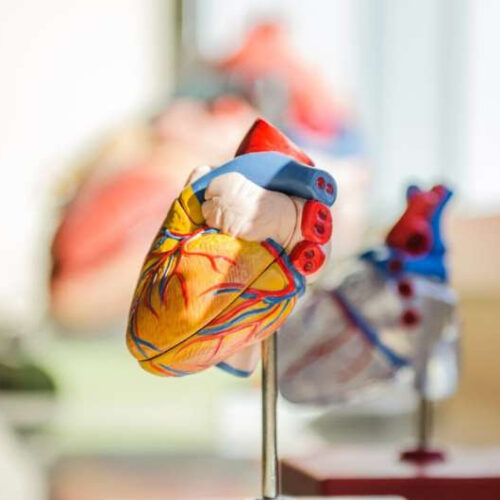by European Society for Medical Oncology Lead author Professor John Haanen. Credit: European Society for Medical Oncology A novel treatment strategy with personalized cell therapy significantly improves progression-free survival compared to standard immunotherapy in patients with advanced melanoma, according to ground-breaking results reported at the ESMO Congress 2022 from the phase 3 M14TIL trial. “This study...
Blocking FNDC5, the precursor of the exercise hormone irisin, protects mice from cancer-induced cachexia
by American Society for Bone and Mineral Research Credit: Pixabay/CC0 Public Domain The severe muscle atrophy and weakness commonly associated with cancer growth (i.e., cachexia) can be prevented simply by being deprived of FNDC5, the precursor of the exercise hormone irisin, researchers from the Indiana University School of Medicine have found. When cancer patients develop cachexia, their...
Study finds antibiotics may make melanoma worse, by depleting the gut microbiome
by American Society for Bone and Mineral Research Credit: CC0 Public Domain The use of broad-spectrum antibiotics in mice with malignant melanoma, an aggressive form of skin cancer, accelerated their metastatic bone growth, likely because the drugs depleted the mice’s intestinal flora and weakened their immune response, according to a new study by researchers at...
Tau hot spots open new avenues of discovery into dementia
by Queensland Brain Institute Representative diffraction-limited image of a neuroblastoma cell expressing Tau-mEos3.2 molecules acquired in the green channel before single-molecule imaging. Credit: Dr Pranesh Padmanabhan / Queensland Brain Institute Newly discovered cellular hot spots of a potentially toxic protein could open new research avenues into how Alzheimer’s disease progresses in the brain. Scientists made...
Automated insulin delivery ups time in target glucose range in type 1 diabetes
Among patients with type 1 diabetes, percentage of time in the target glucose range is increased with the use of an open-source automated insulin delivery (AID) system, according to a study published in the Sept. 8 issue of the New England Journal of Medicine. Mercedes J. Burnside, M.B., Ch.B., from the University of Otago in New...
Treg cell transplantation proves effective in treating brittle bone disease in mouse model
by Medical University of South Carolina Credit: In-Hong Kang et al, iScience (2022). DOI: 10.1016/j.isci.2022.104818 The building blocks of a structure consist of load-bearing elements that rarely change despite renovations or repairs. They remain intact and consistent over time, but in the human body, our building blocks do just the opposite. Bones are dynamic: They constantly break...
HSD3B1 gene research shows an association between genotype and endometrial cancer
by Cleveland Clinic Credit: Pixabay/CC0 Public Domain The HSD3B1 gene could hold clues for predicting and treating endometrial cancer, according to a novel finding from the Cleveland Clinic’s Lerner Research Institute. Researchers found a certain HSD3B1 genotype was more common in women with type 2 endometrial cancer, according to the results published in JNCI Cancer Spectrum. Those...
Daytime eating may benefit mental health
by Brigham and Women’s Hospital Credit: Unsplash/CC0 Public Domain Beating the blues with food? A new study adds evidence that meal timing may affect mental health, including levels of depression- and anxiety-related mood. Investigators from Brigham and Women’s Hospital, a founding member of the Mass General Brigham health care system, designed a study that simulated...
Tumor-infiltrating B cells and plasma cells influence early-stage lung cancer biology, immunotherapy responses
by University of Texas M. D. Anderson Cancer Center Credit: Pixabay/CC0 Public Domain Through extensive single-cell analysis, researchers at The University of Texas MD Anderson Cancer Center have created a spatial map of tumor-infiltrating B cells and plasma cells in early-stage lung cancers, highlighting previously unappreciated roles these immune cells play in tumor development and...
Sweeteners may be linked to heart disease risk, study suggests
Credit: Unsplash/CC0 Public Domain A large study suggested Thursday that artificial sweetener could be associated with a higher risk of heart disease, however experts urged caution about the findings. Sweeteners are consumed by millions every day in products like diet soda, partly as a way to avoid weight gain from sugar—but the healthiness of these substitutes has...










